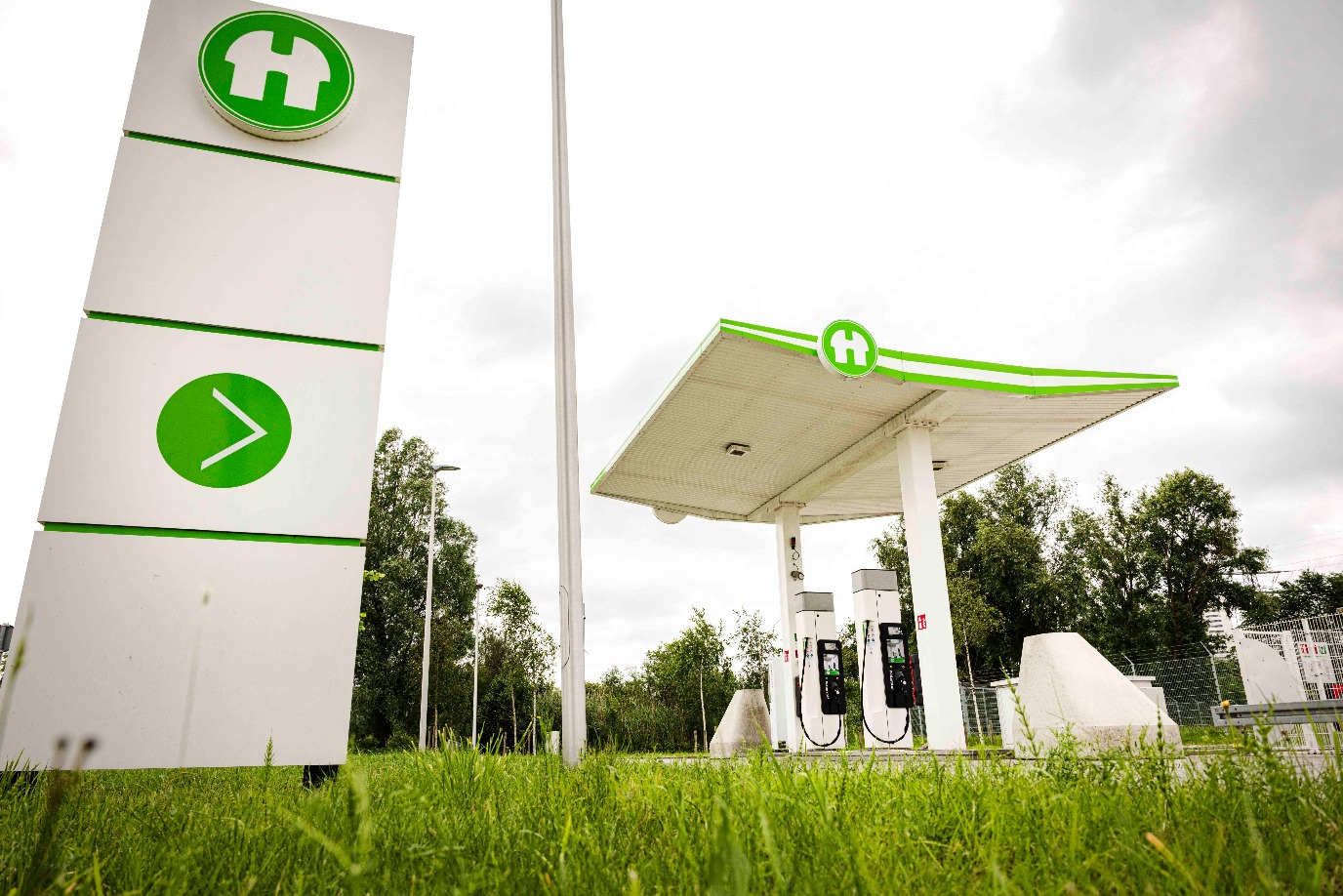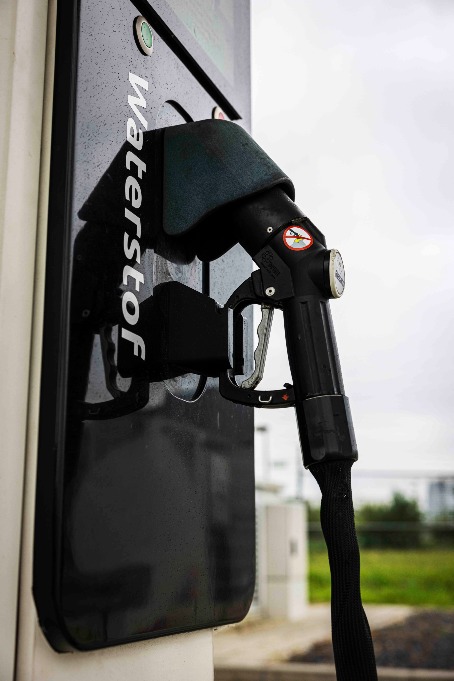Applying hydrogen in cars or toilets
Professor of Energy Conversion Aravind Purushothaman Vellayani is working on systems that use hydrogen to produce electricity – for large factories, for instance. But even your car or your toilet could be capable of producing electricity from hydrogen. Aravind: ‘The technology is available, but for commercial applications, it is often still too expensive. So, this is where science has a part to play: bridging the gap from fundamental knowledge to applications.’
FSE Science Newsroom | Text Charlotte Vlek | Images Leoni von Ristok

‘There is a lot of hydrogen research being carried out at the University of Groningen, and technologically speaking, a lot is already possible.’ In his newly acquired role as Director of Hydrogen Economy at the Wubbo Ockels School for Energy and Climate, Professor Aravind aims to bring all these possibilities together, within and outside the walls of the University.
In his own research, Aravind works closely together with industrial partners. ‘Hydrogen is an excellent candidate for applications in transportation; for instance for inland shipping or trucks. A hydrogen-based fuel cell has the advantage that it weighs very little, and it allows you to travel longer distances than an electric car can.’
From fundamental questions to applications
We want to know exactly how the electrodes in such a system work, or what happens to a fuel cell when the inflow of hydrogen gas varies in composition or temperature.
In the lab, the PhD students in Aravind’s group work on fundamental questions, that need to be answered to enable large applications. They study the finest details of electrolysers that convert electricity to hydrogen, fuel cells that convert hydrogen to electricity, or systems that could perform both reactions: from electricity to hydrogen and back.
The goal, of course, is to make these energy conversions take place as efficiently as possible. Aravind: ‘For instance, we want to know exactly how the electrodes in such a system work, or what happens to a fuel cell when the inflow of hydrogen gas varies in composition or temperature. Once our lab is fully operational, we hope to measure these things while the actual conversion is taking place, which will be quite unique.’
A broad approach
Aravind combines working in the lab with using computer models, that map out exactly where the heat in the system is and reveal where energy losses occur. One PhD student works on models of the HydroHub, a test centre at Zernike Campus where different types of electrolysers can be tested on a larger scale. Aravind: ‘The efficiency can potentially change when you scale up, and that’s what we are investigating.’
About cars and toilets
‘The funniest example of a system that can convert energy, is from my time at TU Delft,’ Aravind laughs. ‘Back then, we were working on a toilet that extracted hydrogen from human faeces and converted it to electricity. The idea was: instead of disposing of human waste and using a lot of energy to clean the sewage water again, you could use it on the spot as a source of energy, for example in a shared toilet facility that also serves as a power plant for the neighbourhood.’

In Aravind’s research, nearly everything can serve as a power plant. Even your hydrogen car of the future—the one that you park in front of your house when you come home: ‘You connect it to a pipeline that supplies hydrogen, and you’ve got your own personal power plant. Can you imagine? You wouldn’t even have to pay for parking anymore, you could earn money by parking your car somewhere.’
The Hydrogen Valley Campus Europe is located in the Northern Netherlands. It is the place where green energy comes ashore (from wind turbines on the North Sea), where years of working with natural gas has led to a wealth of experience, and where universities and vocational institutions will work on new research and the education of the next generation of engineers for the hydrogen economy of the future. This is episode 2 of a series on hydrogen research at the Faculty of Science and Engineering at the University of Groningen.
Read more:
| Published on: | 18 June 2024 |
Hydrogen is an indirect greenhouse gas: by reacting with other compounds in the atmosphere, it may contribute to global warming in several ways.
| Published on: | 11 June 2024 |
Because hydrogen is a much smaller molecule than natural gas, it can easily leak. Even worse, despite its small size, hydrogen can affect larger materials and make them as brittle as glass.
| Published on: | 30 May 2024 |
A sustainable way to produce hydrogen has been around for a century, but it is still much cheaper to make hydrogen from natural gas. Researchers from the UG are working on more efficient, affordable, and scalable production of green hydrogen.
| Published on: | 21 May 2024 |
Green hydrogen holds many promises. But grey hydrogen from natural gas is still much cheaper, storage of hydrogen is not trivial and as an indirect greenhouse gas is not as clean as it might look.
| Last modified: | 27 February 2025 3.25 p.m. |
More news
-
28 March 2025
Climate change: Microbes to the rescue!
Microorganisms may offer solutions that can help us combat climate change, say RUG scientists. This is also shown in an international report.
-
25 March 2025
What is needed to restore the Wadden region?
The Wadden Sea has always played an important role for fish, birds, and soil life: it serves as a breeding ground, refuelling station, and resting place. However, the Wadden Sea is not doing well. Today, researchers of the University of Groningen...
-
24 March 2025
A clearer look at the birth of the universe
Scientists from Faculty of Science and Engineering, University of Groningen, will use the Simons Observatory's new telescope to search for new physics.
